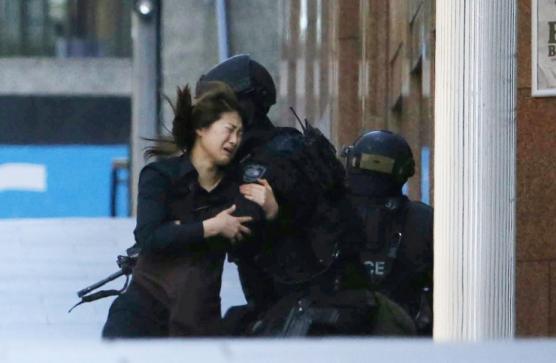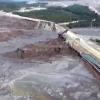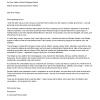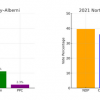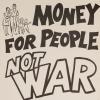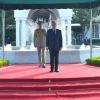To the people and politicians of Australia,
The siege at the Lindt Café in Martin Place, Sydney (15-16th December 2014) was a terrible and tragic event.
Now that the last shot has been fired, each and every one of us has to decide where to go from here. We could say that this was a sorry one-off event and leave it behind us. Alternatively we could say it was too important for that, and there are lessons to be learned. This is the approach that most commentators and indeed the politicians are taking, but with a focus on urgency.
In this mad scrambling for immediate answers, I am calling “time-out”. We need to take a moment to decide where we want to go from here before we finally look up and find ourselves lost, a long way down some unknown highway. I agree there are important lessons to be learned. Before we start asking questions however, we need to decide what it is we want to learn?
We can continue using our recent approach, which assumes that terrorism is the new reality. This focuses on expanding our controls and responses after every terrorist act to try and keep us safe as possible from the next inevitable attack. Or we could try a new approach. We could look at building on the good that came out of the ashes of this terrible event and be a part of a solution to create a united, embracing society where we all stand together and say we no longer want to be part of the violence-retribution cycle.
Who was to blame?
Throughout this process we need to remember that the gunman, Man Haron Monis, is the only person to blame for this tragedy. No matter what his motivations were, no matter what his grievances were, he was the one who walked into a café with a loaded gun. He was ultimately responsible for his own actions.
With the dust barely settled we seem to have forgotten this and swung the focus onto our own errors. We have assumed that terrorism is inevitable and somehow we were at fault for letting it happen to us. It is like the victim of sexual assault who incorrectly blames herself. I knew that sexual predators exist, but still I went out too late, I wore the wrong clothes, I went down the wrong street, I asked for it. This has been driven by no less than the Prime Minister with his press conference on the day following the siege (17/12/2014) when he announced a Commonwealth and State review to urgently answer the questions:
Why was Man Haron Monis granted residency?
How was he able to get social welfare for so many years even though he appeared to be able bodied if not of sound mind?
Why did he drop off the Security Agency watch list?
How was someone with such a history of violence and involvement in such an horrific murder able to get out on bail?
How was someone with such a history of violence and extremist views able to obtain a gun licence? (Since this is now known to be incorrect, the question has changed to: How was it possible that the Prime Minister was given such incorrect information?)
A separate operations review will report back to answer questions focusing on the police response to the actual event:
How come the police did not shoot Man Haron Monis with a sniper?
How come the police did not storm the café earlier?
Did the police cause the deaths by storming in when they did?
Whose bullets killed who?
Sure these are all important questions and we want to make sure the agencies are doing what they are meant to do. But it was not the agencies who walked into a café and took the hostages. We live in a free society, the envy of the world, with systems that support it. It generally works – our laws do not impede too much on innocent people and we trust that most guilty people are held to account for their actions. You cannot have a free society and have every potential criminal behind bars. The police did their best in response to the terrible position Man Haron Monis put them in. We can spend thousands of dollars reviewing every operational decision in minute detail, and sure we might find that if we had days to consider each decision, we might have made different choices. But they did their absolute best to protect us. They did us proud. Let us work with our agencies not against them.
Unfortunately, if someone is really intent on hurting someone else, sometimes we may not be able to stop them. We should not blame ourselves for that.
Without terrorism.
What is the alternative to the urgent cycle of blame and retribution? We could work on nurturing a society where terrorism does not have to exist, by focusing our questions on how to prevent the infection, rather than constantly searching for holes in the bandage.
Terrorism thrives on differences. When we constantly highlight our own differences and fight among ourselves, we are playing into the hands of terrorists. We are a multi-cultural society. We talk proudly of tolerance for our many differences, but we talk and talk and talk like we are trying to convince ourselves, because we can hear the tension bubbling just beneath the surface. Let us not be satisfied with reluctantly “tolerating” the differences of our neighbour – let us strive to “embrace” each other for our similarities. Enough talk of our differences! Differences only lead to division.
The terrorists are particularly eager to keep reminding us of our religious differences, because this is the one area where large numbers of people are particularly passionate, with religion playing a major role in the formation of our identities. Religion was not to blame for this incident but it can cloud the situation. We get lost in defending ourselves and blaming each other with our different belief systems, forgetting the real perpetrator of the crime. What individual belief system we have is not important. It is our actions that are important, and that is what we should be held to account for. Let us put religion aside. Let us stop arguing amongst ourselves and looking for differences, which for most Australians, are only moderate ones at worst.
How do we do this?
Well this is one area where we could learn from our large Australian corporations. For an organisation to achieve its goals people need to work together and in this context religion, like our sexual preference, is rarely discussed. Workmates are careful not to offend each other. They keep their personal beliefs private.
Our politicians need to lead by example. Many civic leaders, with the best of intentions, have offered their “prayers” for the victims and the families. However, highlighting your own religious practices and beliefs unintentionally discounts those of everyone else. At times like these the words and actions of our politicians, along with any underlying biases, are amplified. For Australia to be a truly embracing multicultural society, we need to keep religion out of politics. Our government should be focused on nurturing a society that embraces all people irrespective of their beliefs, but holding them accountable for their actions.
Building on the good news.
In the midst of such tragedy, a number of positives have emerged. We saw countless images and stories of bravery and hope, rising out from an overwhelming collective grief. With this sort of solidarity on display, a world that would not accept terrorism seemed almost within reach.
These lessons are too important to leave behind. We can all learn and build upon them.
#Illridewithyou
While the events of the siege were still unfolding, a lady posted a simple message on Twitter - against the fear of a potential backlash - offering to ride on public transport with Muslim people. Small actions by everyday people can change the world. Let us not leave everything to someone else. Let us do what we can, no matter how small to keep us moving in the right direction.
The floral tribute
The morning following the end of the siege, a lady left a bunch of flowers in Martin Place. Soon it was two bunches, then three, then hundreds and then thousands. Temporary tables were set up alongside with books for messages of support. This impromptu gathering/coming-and-going of thousands of people represents what a real modern day, all embracing multicultural Australia looks like. The differences between people did not come into it. Only the similarities. Everyone was brought together by grief and hope for a better future, and everyone was free to express it their own way. There were many touching images from people of all cultural backgrounds: parents with their arms around their children, people crying and supporting each other, groups of people singing, a young man kneeling while playing “Auld Lang Syne” on a mouth organ.
When you stand amongst these people, you know the future will be alright. We do not accept what happened in the café. We are going to stand up for ourselves and we are going to protect each other.
The hero stories
Many of us have wondered what we would have done if we were in such a terrible situation. Would we have stood up for ourselves, and our friends and colleagues, like both Tori Johnson and Katrina Dawson did? They acted when they saw the chance and they both died heroes doing it. We cannot let their brave actions go to waste. We need to remember the stories that brought tears to our eyes – their inspiring lives and their bravery in the face of death. What better way to encourage us to take action in our own lives.
A new focus.
A new focus is needed. Let us break out of the standard violence-retaliation cycle. Declaring war on terror and clamping down on the freedoms of innocent people only creates divisions and more disaffected people. Even if we find and kill every member of every terrorist group, we will still have the next generation of disaffected people to contend with and another emerging group eager to exploit their anger. Only when there are no more disaffected people, will there be no more terror.
We need to start focusing on the similarities in people rather than their differences. The best in people rather than the worst. Let us build a memorial to life out of the ashes of this massacre. A place where people can come to remember and draw upon the courage of Tori Johnson and Katrina Dawson. A place where people can remember not only the collective outpouring of grief but the resolve to be a part of not only a “tolerant”, but an “embracing” future.
Let us demand that our politicians lead by example and keep their religious beliefs out of their politics, so the rest of us are encouraged to put our religious differences to the side. It is our similarities despite different beliefs that is truly inspiring.
Let us not lose sight of what we are fighting for. Man Haron Monis was to blame for this tragedy. Our security agencies and our police are doing their best to try and protect us. While it is important to ensure they keep improving, let us not lose focus. They are not the enemy. Let us work together and support them.
Finally, let each and every one of us lead by example. Let us focus on winning back the disaffected individuals to our enviable way of life. Let us shift our focus by appealing to the best in them, rather than only trying to fight with the worst in them. Let us not give up on the terrorists by assuming they are always going to be terrorists. Even if we cannot win them over, let us try to win their children over for the sake of ours.
Yours sincerely,
For Positive Change











